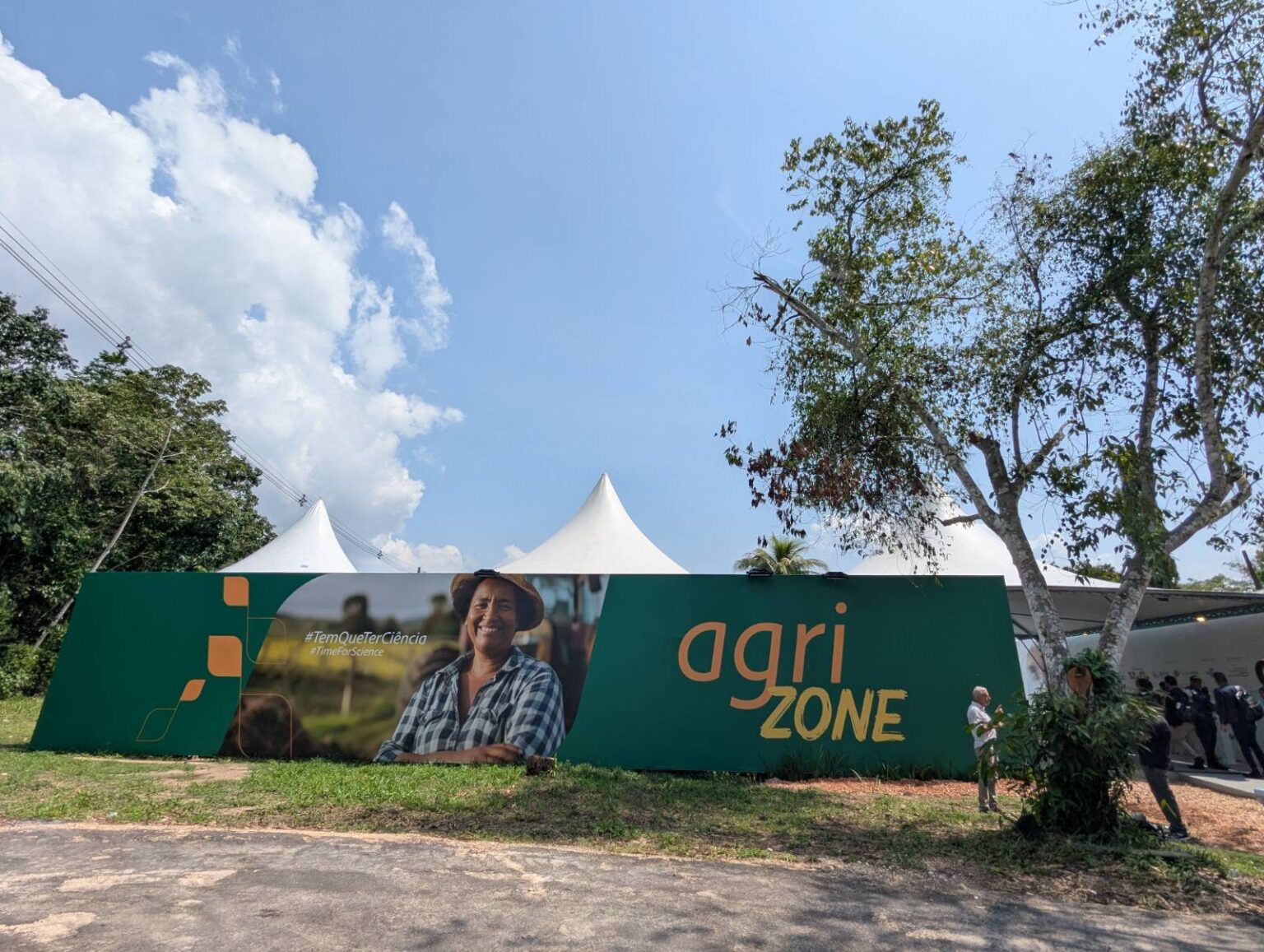With the clock running down at the COP30 climate talks, the Brazilian hosts are working hand-in-hand with industry groups to secure backing for biofuels in the final text – despite fears that scaling production will drive deforestation and violate Indigenous rights.
National delegations are at loggerheads over a proposal to include language backing the use of “transitional fuels” – which could be read as an open door for biofuels – in a draft Just Transition Work Plan to guide a fair and equitable transition away from fossil fuels.
The UK, Colombia and some other countries are concerned that including any language that appears to back biofuels will encourage plans to clear huge tracts of land, harm communities, wipe out wildlife, and poison ecosystems with pesticides.
“Bioenergy is a false solution,” said Ruairi Brogan, senior policy officer on bioenergy at bird and wildlife charity the RSPB. “We risk transitioning away from fossil fuels to a new ‘sustainable’ fuel that’s going to wreak havoc not only on the climate but on land rights, human rights, and nature.”
Subscribe to our newsletter
Stay up to date with DeSmog news and alerts
Brazil is the world’s second largest exporter of biofuels – mostly ethanol derived from sugarcane or corn. When the talks opened last week, Brazil’s COP presidency won plaudits from the industry by launching its ‘Belém 4x’ initiative to quadruple global production of “sustainable fuels” – which includes biofuels. Major biofuel players Canada and India, as well as Italy and Japan, were among 23 countries to back the plan.
Brazil’s pro-biofuels stance at COP30 builds on months of lobbying by Brazilian and international trade groups, who met with Brazilian government ministers, joined steering groups for the summit, and presented the organisers with their demands in order to pave the way for a favourable deal at the talks, according to industry documents reviewed by DeSmog.
The agribusiness Industry has since sought to shape the agenda at COP30 by deploying more than 300 lobbyists to the talks, including representatives from industrial farming, livestock, soy and grain producers. The number of representatives from bioenergy trade groups more than doubled to 38 compared to last year. That figure does not include representatives of companies in the aviation, car and energy sectors with a vested interest in biofuels, nor their broader trade groups.
DeSmog identified a total of nearly 60 events on the benefits of biofuels led by industry groups and related companies at COP30.
“Biofuels have been comprehensively debunked as a climate solution, but the presence of hundreds of Big Agribusiness representatives at COP30 has likely been a factor in the resurrection of this forest-chomping climate zombie, which refuses to die,” said Teresa Anderson, global lead on climate justice at ActionAid.
Brazil’s biofuels market is estimated to be worth almost $10 billion, a figure expected to nearly double by 2032, and the country’s government and industry is keen to counteract growing awareness of associated harms.
Environmental non-profit Transport and Energy found last month that biofuels are responsible for 16 percent more CO2 emissions globally than the fossil fuels they replace due to impacts from their vast land requirements.
Demand for biofuels for transport alone would require an area of 52 million hectares of agricultural land by 2030 – similar to the size of France, according to a 2024 analysis by environmental consultancy Cerulogy.
‘Transitional Fuel’
While the term ‘transitional fuel’ has no officially agreed definition, many states within the COP negotiations deem it to include bioenergy as well as hydrogen and natural gas.
Countries sceptical of biofuels have called for the phrase to be removed from the draft Just Transition Work Programme, which was initiated at the COP28 round of climate talks held in Dubai two years ago and is now under discussion at COP30.
But campaigners fear that similar phrasing could also make it into Brazil’s much-lauded proposal to create a roadmap to guide the world’s transition away from fossil fuels. On Tuesday the Brazilian presidency published a draft text called the ‘Mutirao Decision’ — a Portuguese word of Indigenous origin meaning ‘collective effort – that included the roadmap proposal.
“There is an increasing risk that the decision from COP30 on Just Transition and other points of the agenda will include the alarming promotion of so-called ‘sustainable’ or ‘transitional fuels’, opening up a dangerous opportunity for the expansion of types of biofuels,” said a source close to the negotiations.
Industry Demands
Brazil’s position at COP30 maps closely onto industry demands.
In a January 2025 newsletter, the World Biogas Association – which counts PepsiCo, Shell and BP among its members – said that it was “collaborating with Brazil’s COP30 team to ensure that its climate leadership benefits both the global and Brazilian biogas sectors”.
The COP presidency and World Biogas Association did not reply to questions about the nature of the “collaboration”.
“Our challenge now is to communicate to the world that Brazil, in addition to producing clean energy, offers a replicable path to decarbonisation based on innovation, scale and sustainability,” Evandro Gussi, president of the Brazilian sugarcane association UNICA, stated in a press release published in May.
Lobby groups including Bioenergia Brasil and UNICA launched the ‘Belem Charter’ – a document of industry demands for the climate summit – during a meeting attended by government officials in early October. Speakers at the event included Marlon Arraes Jardim Leal, director of biofuels at the country’s Ministry of Mines and Energy, and congressman Arnaldo Jardim – who has been a vocal supporter of biofuels at COP30.
The groups called for the inclusion of biofuels in Nationally Determined Contributions – official plans submitted to the UN by a given country on how it will reach international climate goals – a proposal echoed by Brazil in its Belém 4x initiative to boost biofuel production.
The biofuel sector has also sought to make its presence felt in Belém, where billboards advertise their benefits across the city. Two biofuel-powered 4X4s dominate the entrance to the Agrizone, the official venue for food and farming at the summit, which is sponsored by major agribusiness companies. Even the free buses deployed by the Presidency to ferry delegates around Belém feature biofuel advertisements from state oil company Petrobras.
Roberto Rodrigues, Brazil’s special envoy for agriculture at the summit, echoed the biofuel industry narrative when he spoke on a panel on Saturday, hosted by the Brazilian National Confederation of Industry.
“Latin America, South East Asia, Africa, they need to improve their efficiency, their energy — and Brazil has a model for this [in its rollout of biofuels],” Rodrigues said.
Trade associations named in this article were contacted for comment, as well as Brazil’s Ministry of Mines and Energy and the COP30 presidency.
Brogan from RSPB suspects that industry is only going to intensify its presence at future summits. “As countries begin to scramble to transition away from fossil fuels, if not now then in the next COP, they’re going to start to look desperately for other alternatives,” he said.
Nonetheless, Brogan believes that broader adoption of biofuels is by no means inevitable, pointing out that just 23 out of 197 countries in the COP30 discussions signed the commitment to vastly scale biofuels.
“Wealthy countries need to stop fossil fuels, but they also need to move away from harmful bioenergy, and just move full-tilt to renewables,” Brogan said.
Subscribe to our newsletter
Stay up to date with DeSmog news and alerts







